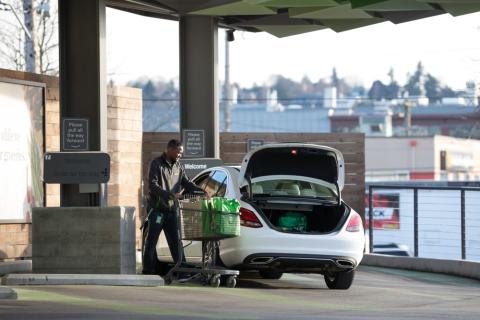Most Grocers Believe Optimized Fulfillment Will Boost E-Comm Profitability

A recent report by Incisiv, conducted in collaboration with FMI – The Food Industry Association and in partnership with Relex, spotlights the importance of strategic fulfillment in achieving digital profitability.The report, “Increasing Online Profitability Through Strategic Fulfillment,” aims to help grocers navigate the complex landscape of strategic fulfillment, find opportunities for growth and surmount challenges to thrive in an increasingly competitive market.
“Digital offers immense potential for growth,” said Gaurav Pant, chief insights officer of West New York, N.J.-based Incisiv. “However, for that growth to be profitable, grocers must improve their fulfillment operations considerably. Grocers can unlock the opportunities presented by optimizing availability, enacting more strategic fulfillment methods and harnessing the power of AI to improve their margins.”
[Read More: “Key Strategies for Retailers Facing Online Competition”]
Among the major takeaways from the report:
- 97% of grocers identified improving product availability as their highest technology priority, followed by using technology to better balance workload and orders (89%).
- Produce and center store products were the top two areas earmarked for more strategic fulfillment options.
- Almost 90% of respondents said that better optimizing their end-to-end order fulfillment methods would afford them the best opportunity to improve profitability.
- 59% of grocers said they were dissatisfied with their e-commerce strategic fulfillment solutions.
Said Doug Baker, VP, industry relations at Arlington, Va.-based FMI: “Technology is enhancing customer loyalty and retention; since 2019, among the wide range of applications we see in our operations analyses is that most food retailers have been experimenting with new technologies to improve customer experience and efficiency, relieve margin pressures, shore up labor limitations, and improve e-commerce capabilities. Key strategies have included shopper loyalty programs and a checkout experience focused on speed that is frictionless.”
“As the grocery industry continues to adapt to the omnichannel landscape, it is imperative they evolve their strategic fulfillment strategies to align with consumer expectations,” added Marc Koehler, director of product strategy at Atlanta-based supply chain and retail-planning platform Relex Solutions. “Unifying processes and driving efficiencies related to strategic fulfillment, including forecasts and order recommendations, and pricing and promotion strategies will all help to improve profitability while ensuring consumer satisfaction.”
The report comes at a crucial time: 69% of grocery sales in 2023 are digitally influenced, but profitability remains a considerable challenge, with a whopping $23 billion lost in digital sales due to unavailable or unsubstituted items last year.






